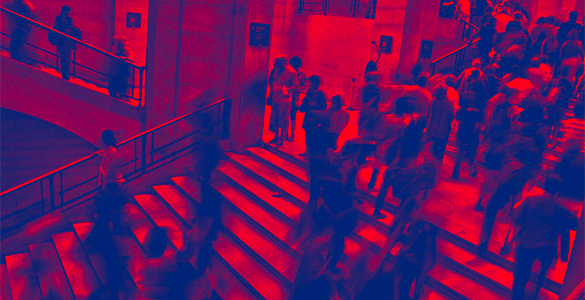How GDELT is changing how we measure peacefulness?
Exploratory: Demography, Economy and Finance 2.0
Could data revolution help the measurement of peacefulness? Data Scientists for Social Good and Social Good organisations, such as the United Nations (UN), highlight the importance of harnessing the data revolution [1] to put the best available tools and methods to work for the well-being and its dimensions [2] or in achieving the Sustainable Development Goals [3], such as peacefulness.
Traditionally, peacefulness is measured by institutional surveys and governmental data. However, such data are usually expensive and require time to be collected. Therefore, novel digital data streams make the measurement of peacefulness cost and time-efficient, and real-time.
Global Data on Events, Location, and Tone (GDELT) [4-5] is a novel digital news and free access database, yet barely explored, which is very promising for societal research. It describes the worldwide socio-economic and political situation through the eyes of the news media, making it an ideal data source for measuring well-being indexes, such as the Global Peace Index (GPI) [6], which captures the peacefulness around the world at country and yearly level.
Considering that the global society is under socio-economic and political crisis and instability, policy-makers and social good organisations need frequent updates of peacefulness. For this purpose, we use the GDELT database, which is updated every 15 minutes and it can contribute to the estimation of GPI at a higher frequency, i.e., monthly frequency and in a time-efficient way. In particular, we extract news media attention, sentiment, and social stability features that we use as proxies for estimating GPI.
Through the analysis, we not only measure the monthly peacefulness per country, but we also discover the most important socio-economic, political, and military factors that capture peacefulness or extraordinary events. For example, the most important factors for Somalia are related to military engagement and improvised explosives showing the war-torn profile of the country.
Poster Presentation of our study at the IC2S2 2020 conference
We therefore demonstrate that almost real-time GPI estimations as captured from GDELT can reveal month-to-month peacefulness fluctuations and significant factors and events. This could be beneficial for researchers, policy-makers, and peacekeeping organizations, such as the UN and Red Cross, to facilitate the timely reaction on applying the right policies, prevent detrimental societal effects and contribute effectively to societal progress. Last, we believe that this study could be replicated for any other well-being or socio-economic index.
The paper describing the full research can be found in:
V. Voukelatou, L. Pappalardo, I. Miliou, L. Gabrielli, F. Giannotti, “Estimating countries’ peace index through the lens of the world news as monitored by GDELT” Proceedings of IEEE International Conference on Data Science and Advanced Analytics (DSAA2020), http://dsaa2020.dsaa.co/main-track-papers/
References:
[1] C. Melamed, L. Morales, Y. Hsu, J. Poole, B. Rae, I. Rutherford, and A. Jahic, “A World That Counts-Mobilising the Data Revolution for Sustainable Development”, United Nations. Accessed March, vol. 12, p. 2018, 2014
[2] V. Voukelatou, L. Gabrielli, I. Miliou, S. Cresci, R. Sharma, M. Tesconi,and L. Pappalardo, “Measuring objective and subjective well-being:dimensions and data sources,”International Journal of Data Scienceand Analytics, pp. 1–31, 2020
[3] UNDP, “Sustainable Development Goals.”https://sustainabledevelopment.un.org/sdgs, 2015.
[4] K. Leetaru, “The GDELT Project.” https://www.gdeltproject.org/, 2013.
[5]V.Voulatou and Luca Pappalardo “GDELT: a unique, massive and open dataset for unfolding and understanding our society”
[6] The Institute for Economics and Peace, “VISION of HUMANITY.” http://visionofhumanity.org//, 2017.
Written by: Vasiliki Voukelatou
Revised by: Luca Pappalardo

